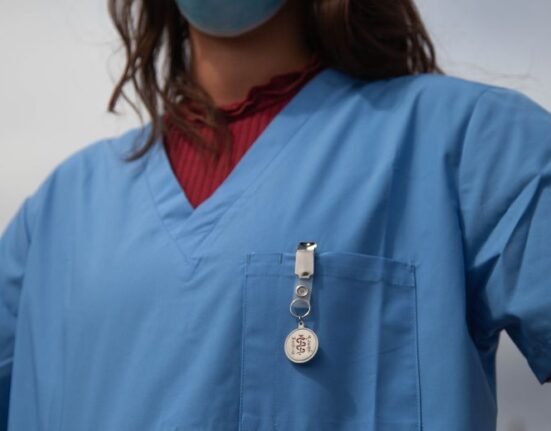HQ Team
May 23, 2023: More than 35,000 sexual safety incidents, ranging from abusive remarks to rape, have been allegedly perpetrated by staff, patients, or visitors at the National Health Service of the UK for five years ending 2022, a probe by The Guardian and British Medical Journal found.
A majority of the cases were of patient-on-staff abuse, and nearly 7,500 were allegations of patients abusing other patients and more than 3,000 were cases of staff abusing patients.
The investigation recorded 35,606 sexual safety incidents in the 2017-2022 period.
More than 20,000 alleged incidents of sexual violence and sexual misconduct by patients on hospital staff were recorded in the five years by 212 NHS trusts in England, freedom of information requests by the Guardian and the BMJ revealed.
The 20,928 cases accounted for just under 60% of the total alleged incidents trusts disclosed. Allegations included claims of rape, sexual assault, harassment, stalking, and degrading remarks.
Deterred from complaining
According to the report, experts cautioned that the figures were likely to be a serious underestimate as the staff is often deterred from making complaints when patients abuse them.
The joint investigation stated that about 20% of incidents involved rape, sexual assault, or kissing or touching that a person did not consent to, although not all trusts provided a breakdown of the type of incidents recorded.
Police recorded nearly 12,000 alleged sexual crimes on NHS premises in the same time period. These include 180 cases of rape of children under 16, with four children under 16 being gang raped.
The investigation found that fewer than one in 10 trusts has a dedicated policy to deal with sexual assault and harassment, and are no longer obliged to report abuse of staff to a central database.
Latifa Patel, BMA workforce and equalities lead, said she assumed that trusts without dedicated sexual safety policies are “sitting on huge numbers of unreported incidents,” which she describes as “a truly disturbing implication.”
Reluctant to report
The data show that 193 of the 212 trusts reported 10 or fewer staff-on-staff incidents between 2017 and 2022, but doctors describe this as “implausible” given their number of employees, and say that staff is reluctant to report sexual assault.
Simon Fleming, an orthopaedic registrar, and author said: “I know hundreds of female doctors who’ve been assaulted, thousands who’ve been harassed, and a decent number who’ve been raped within the NHS.”
And although more than 4,000 NHS staff were accused of rape, sexual assault, harassment, stalking, or abusive remarks towards other staff or patients in 2017-22, the investigation found that only 576 have faced disciplinary action.
When complaints were made against colleagues, women claim that NHS trusts show a “reluctance to suspend perpetrators due to overall staff shortages,” says Deeba Syed, senior legal officer for Rights of Women, a helpline that provides support for women who have been sexually assaulted or harassed at work.
The Academy of Medical Royal Colleges, the Liberal Democrats, the Hospital Doctors Union, the GMB union, the Society of Radiologists and the British Dietetic Association have all called for an independent inquiry into the epidemic of sexual assault in the NHS in light of the findings.
Quit her job
Fleur Curtis, 43, was sexually assaulted on three occasions by a junior doctor in 2016 and 2017 when she was working as a physician associate at the Princess Royal Hospital in Telford.
She told The BMJ that the trust’s poor handling of her complaint had a massive impact on her mental health, forcing her to quit her job in 2020.
Trusts need to be guided by NHS-wide policies on how to deal with allegations, including when to suspend staff and when to report individuals to the police, and should act swiftly to deal with complaints, said Tamzin Cuming and Carrie Newlands, from the Working Party on Sexual Misconduct in Surgery.
BMA workforce and equalities lead Patel said: “Employers must ensure that victims are supported and feel empowered to report sexual harm and resolve to take appropriate action.”
“It is heartbreaking to see the extent to which the NHS has failed to provide this safety to patients and healthcare staff.”
‘Working closely with NHS’
Health Secretary Steve Barclay said that the government has doubled the maximum sentence for those who are convicted of assaulting health workers and is working closely with NHS England to prevent and reduce violence against staff.
In a linked opinion article, Simon Fleming said everyone is responsible for holding sexual predators in the NHS accountable or risk becoming complicit bystanders.
“Criminal behaviour should be dealt with seriously, regardless of who has committed the crime,” he said. “Failure to challenge, individually or organisationally, these attitudes is akin to accepting them as ‘just how things are.’”
Rosalind Searle at the Adam Smith Business School, University of Glasgow, said failures to record, investigate, and act on cases of sexual harassment and abuse in healthcare have enabled perpetrators.
She outlined three sanctioning mechanisms—self, social, and legal sanctions—that are needed to reduce these violations in workplaces and society.





